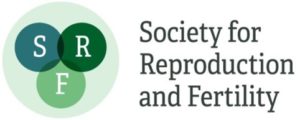Academic Scholarship Fund
Academic Scholarship
Important Notice for 2024
At the SRF AGM held in January 2024, the Council proposed, and members voted in agreement, to postpone the SRF Academic Scholarships for 2024 only, and this funding be used to provide a bursary to support members to attend the Society for the Study of Reproduction (SSR) Annual meeting. This meeting is being held in Dublin, Ireland and is a unique opportunity for SRF members, especially Early Career members to attend this meeting which is usually held in North America.

